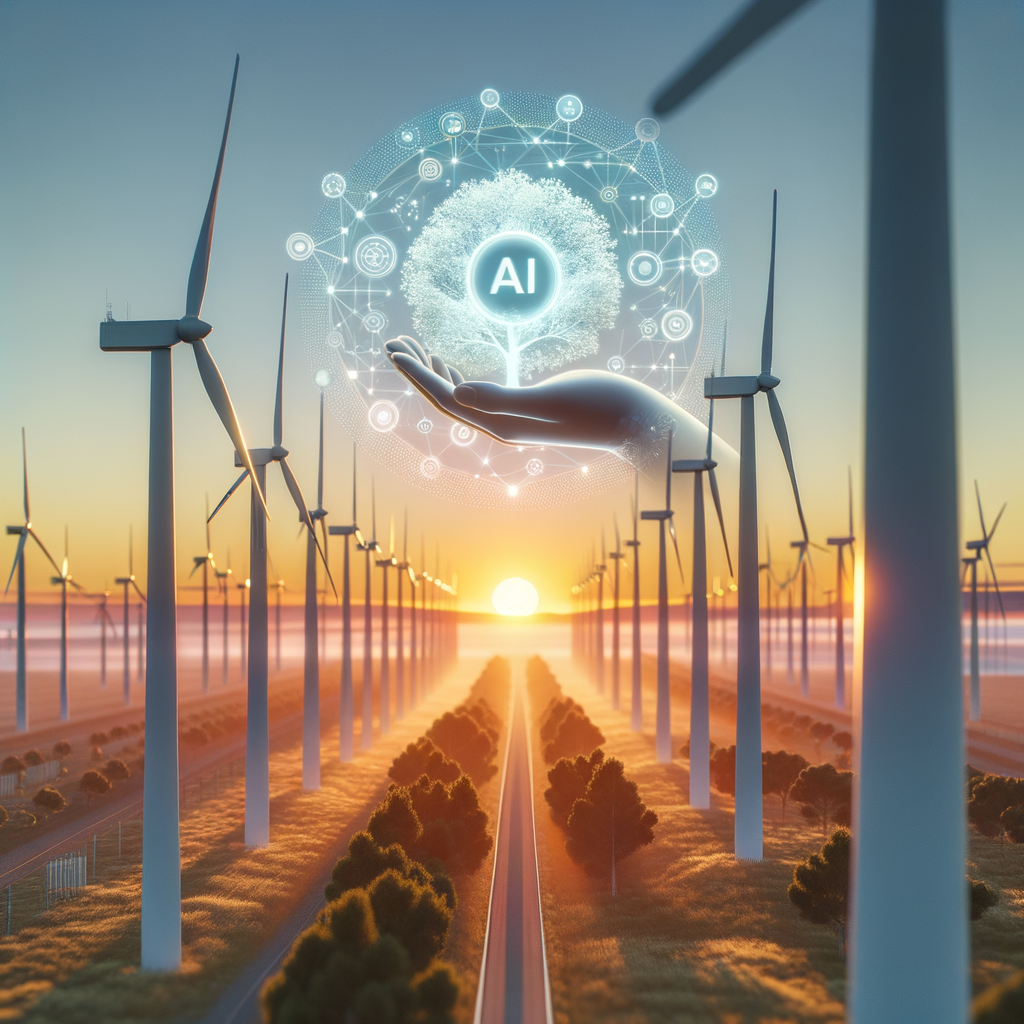
Accelerating the Future: How AI Is Redefining Renewable Energy Solutions
This blog post explores the transformative role of artificial intelligence in the renewable energy sector. From optimizing resource management to facilitating smart grid solutions, discover how AI technologies are revolutionizing energy production and consumption for a sustainable future.
Introduction
Artificial Intelligence (AI) is reshaping industries at an unprecedented pace, and the renewable energy sector is no exception. Leveraging AI for designing innovative renewable energy solutions not only enhances efficiency but also propels us towards a more sustainable future.
AI-Driven Smart Grids
Smart grids, powered by AI, provide real-time monitoring and control over energy distribution. These intelligent systems manage energy loads effectively, anticipate failures, and propose solutions to reduce energy wastage. Through predictive analytics, AI algorithms can forecast energy demands and optimize the energy flow, ensuring stability and efficiency in energy distribution.
Resource Optimization in Renewable Energy
AI technologies improve the management and utilization of renewable resources such as solar, wind, and hydroelectric power. Machine learning algorithms predict weather patterns to optimize solar panel angles and wind turbine operations, maximizing energy capture. Moreover, AI aids in optimizing water flow in hydroelectric systems by analyzing water availability and demand forecasts.
Enhancing Efficiency with AI
AI enables the development of more efficient solar panels through deep learning algorithms that analyze photovoltaic cells' performance under varying conditions. Moreover, AI facilitates the design of wind turbines that adapt to changing environments, improving durability and output.
Facilitating Sustainable Practices
By integrating AI into renewable energy systems, we encourage sustainable practices, such as reducing carbon footprints and promoting energy conservation. Smart systems can autonomously manage and control home appliances for efficiency, cutting unnecessary energy consumption and encouraging users to adopt greener technologies.
Enabling Innovative Energy Solutions
AI fosters the development of pioneering energy solutions, such as energy storage systems that predict and store surplus energy for future use. It assists in creating grid-independent energy systems, such as microgrids, which enhance energy resilience and reduce reliance on traditional energy sources.
Case Studies
Several leading energy firms have successfully implemented AI to enhance renewable energy. For instance, Google's use of AI in reducing its data center's cooling needs by 40% or DeepMind's AI managing wind farms' operational efficiency serve as examples of effective AI application in energy.
Challenges and Future Prospects
Implementing AI in the renewable sector does come with challenges, including the high costs of deployment and the need for substantial data and computing power. However, as technology advances, these hurdles are expected to diminish. The future of AI in renewable energy looks promising, with advancements leading to new methods of harvesting and utilizing renewable energy responsibly.
Conclusion
AI's integration into renewable energy systems causes a paradigm shift, affecting how we produce and consume energy. By continuing to push the boundaries of AI technology, we move closer to a future where renewable energy is the norm, contributing to a cleaner and more sustainable world.